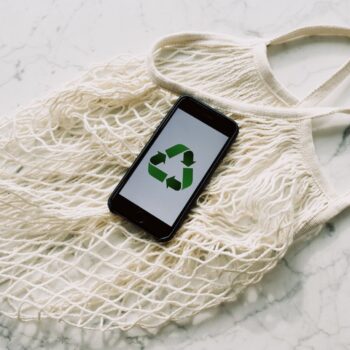
New EU Regulation on Packaging and Packaging Waste (PPWR)
The Packaging Directive 94/62/EC in 1994 oversees the marketing and management of packaging and packaging waste. It imposes fundamental requirements on the composition and recoverable and reusable nature of packaging for all items sold on the EU market. In 2014, a fitness check[1] of the Directive revealed the necessity for more explicit and well-defined regulations concerning the composition and the recyclable, reusable, and recoverable nature of packaging. Thus, the PPWR replaces the previous Packaging and Packaging Waste Directive of 1994.
In this regard, the European Commission has released a proposition on packaging and packaging waste (PPWR) in the EU on November 30, 2022. The general objective of the proposal is to establish a fully harmonized regulatory framework for packaging that facilitates the efficient functioning of the internal market, while simultaneously addressing the adverse impacts of packaging and packaging waste on the environment and public health. The Commission’s proposal also includes specific goals, which are (i) to decrease the production of packaging waste, (ii) to encourage a cost-effective circular economy for packaging, and (iii) to advocate for the use of recycled materials in packaging. Based on these objectives, Member States will have to reduce their per capita production of packaging waste by 5% by 2030, with a subsequent increase to 10% by 2035, and finally reaching 15% by 2040 in comparison to the levels observed in 2018.
In fact, the presence of packaging is vital in ensuring the protection and safe transportation of goods, and it also serves as a significant contributor to the EU’s economic activity. However, due to differences in regulatory approaches among Member States, there are obstacles that hinder the internal market for packaging from functioning effectively.
The implementation of the PPWR would result in several outcomes, including:
- establishment of clear and uniform rules concerning packaging that will enhance long-term planning security for packaging-related investments.
- It has also a positive impact on the internal market, promoting fair competition among packaging manufacturers.
- effective prevention of packaging waste will lead to a reduction in the expenses incurred during waste collection and treatment.
- It is anticipated to create new business models based on reusable, closed-loop packaging solutions.
- the measures aimed at reducing packaging waste would necessitate the adoption of new business and consumption models by producers, retailers, and consumers.
- the PPWR will also take into account the impact on employment and job creation
- the anticipated shift towards reusable packaging, increased recycling, and the development of a more competitive secondary material market are expected to have favorable impacts on job creation.
- the implications of the PPWR on consumer safety and hygiene, particularly concerning food packaging and contact materials, would be evaluated more carefully, considering the lessons learned from the COVID-19 pandemic.
It is worth mentioning that, the PPWR may have some indirect impacts on the use of Incoterms 2020 in international trade transactions as well. The regulation aims to improve the sustainability of packaging in the EU and sets new targets for the collection, recycling, and reuse of packaging waste. These targets could affect the packaging requirements for goods being traded, and this could indirectly impact the use of Incoterms 2020. For instance, if a company needs to change its packaging materials to comply with the new EU regulation, it may need to adjust the delivery terms under the Incoterms 2020 to reflect the new packaging requirements. The companies may also need to consider the cost implications of complying with the new packaging waste regulation and factor these into their negotiations of trade terms under Incoterms 2020. Hence, it could indirectly impact the packaging requirements, and cost implications of complying with the regulation may need to be considered during negotiations of trade terms under Incoterms 2020.
In conclusion, the new EU Packaging and Packaging Waste Regulation represents a significant step towards a more circular economy in the EU to harmonize the different national packaging waste management systems across the EU, encourage the reduction of packaging waste, and improve data reporting to ensure that data is reported consistently across the EU. Moreover, by setting new targets for recycling and improving the sustainability of packaging, the PPWR aims to reduce the environmental impact of packaging waste and to promote more sustainable use of resources.
Niloofar Foroozanfar
[1] A fitness check is an evaluation of the effectiveness, efficiency, coherence, relevance, and EU-added value of an existing EU law or policy. In the context of EU directives, a fitness check is an assessment of whether the directive is achieving its intended objectives and whether its benefits outweigh its costs.

- Posted by Niloofar Foroozanfar
- On 18 Maggio 2023


